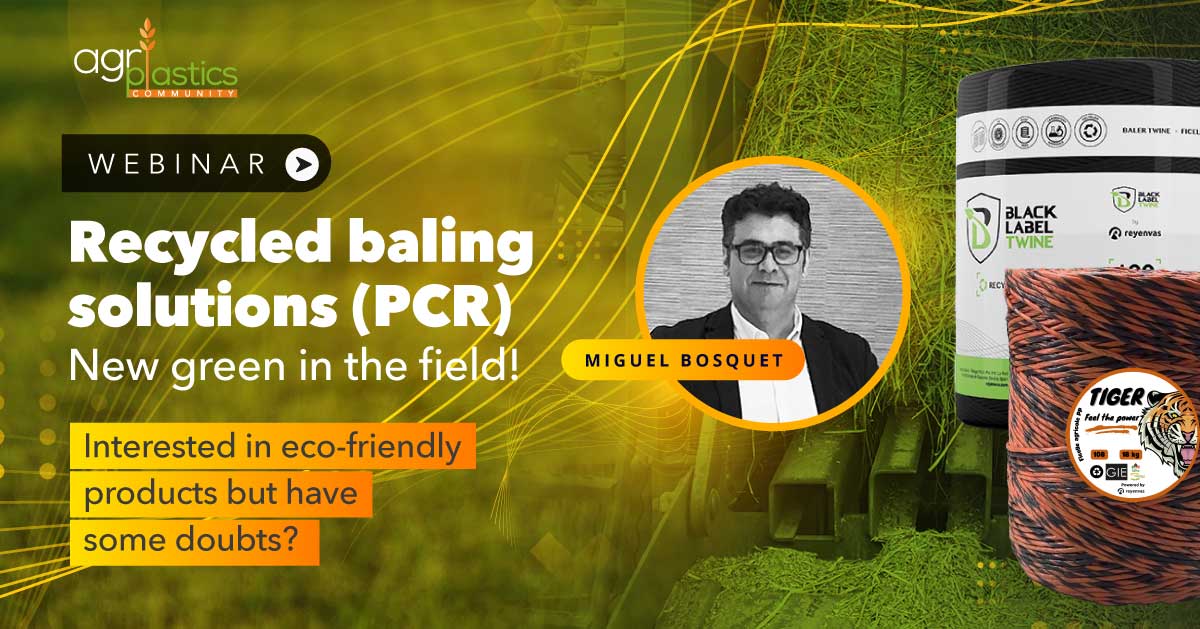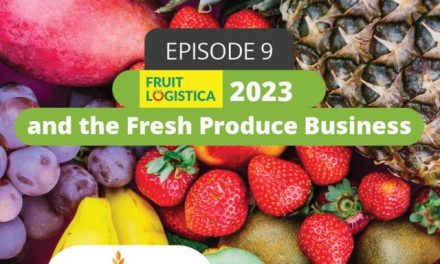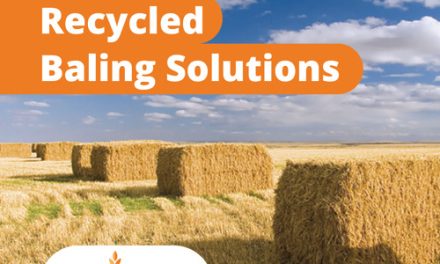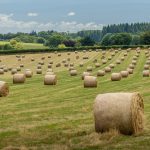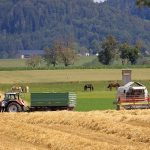
Fines for agricultural waste and how biodegradable plastics can help in this regard

It is no secret that over the last years the agricultural industry has been resorting to the use of plastics to improve the conditions of its crops, and to promote the benefits of plasticulture to offer products that meet quality standards. Today, however, there are those who agree on the need to find other sustainable alternatives, such as biodegradable plastics for mulching that are less invasive or environmentally friendly reducing the agricultural waste as a result of plastics use.
It is evident to everyone that humanity is increasingly focused on finding much healthier alternatives in terms of food and self-care. For that precise reason, organic farming has become accepted and more popular among conventional farmers, even though many are unaware that this type of agriculture also depends, to a large extent, on the use of plastics to remove weeds, improve the management of the amount of water used, keep pesticides under control and as additional assistance for plant growth.
Fines and Laws that affect agricultural activities
Despite the advantages offered by agricultural plastics, it is important to remember that their use also requires the compliance of certain regulations and laws associated not only with the use of plastics, but also with the practice of agriculture in general. For example, what do we do with the waste generated once we have used any agricultural product necessary for the operation of our business?
One common practice to dispose of agricultural waste is open field burning. This practice is prohibited in some states such as Tennessee, and fines can reach up to $25,000 per incident, according to the article A Guide to Legal and Safe Open Burning of On‐Farm Wastes in Tennessee published by the Institute of Agriculture of the University of Tennessee.
Plastics used to store hay or silage from the field or agricultural plastic films used for soil disinfection are among the examples of products used in farms that frequently end up burnt or as buried waste. However, burning the vegetation that has grown on your farm is allowed.
There are different Federal Laws involved in the subject of agricultural waste, so it is essential to keep them in mind to avoid incurring in any non-compliance:
- Federal Clean Water Act
- Federal Groundwater Laws and Regulation
- Federal Clean Air Act
- Federal Resource Conservation and Recovery Act for solid and hazardous waste
- Federal Insecticide, Fungicide, and Rodenticide Act
- Federal Endangered Species Act
- Federal Migratory Bird Treaty Act
In this regard, we invite you to read this document that contains all the information related to each of these Federal Environmental Laws affecting agricultural activities in the United States.
Also, it is necessary to verify each of the laws or regulations that affect the agricultural practice based on each state. In this sense, The National Agricultural Law Center is an ideal resource to obtain the latest information on the subject.
To avoid unwanted fines, we provide a link with information from the US Department of Agriculture explaining the Agricultural Waste Management Systems recommended in different fields of agriculture.
Why is it important to evaluate the use of biodegradable plastics if their use is feasible on your crops or farm?
According to research and data surveys carried out on several farms in the United States alone, it has been shown that annually large amounts of plastic that lived up their useful life after being used in crops (whether through coats, irrigation systems, tunnels, bale wrappers and greenhouse covers) go to garbage dumps without being used for any other purpose, representing an ecological threat in the short and long-term. This is a reality that must change radically in the opinion of many experts in the agricultural industry.
Sometimes, it is quite difficult to find reliable and specific numbers of the actual amount of plastic that is used each year in agriculture, but there are experts in the area like Gene Jones of Southern Waste Information eXchange, who have decided to come up with some estimates.
There are analyses indicating that China is currently estimated to be the largest consumer of plastics for agriculture in the world, using roughly 60 percent of all that plastic, according to data stated on the website GreenBiz.
The agricultural community agrees on the need to propose and find alternative solutions -that are environmentally responsible- for the development of new materials. According to information stated in National Public Radio, many farmers who are dedicated to cultivate organic products are joining their efforts to be able to find a definitive alternative to the use of plastics as it is known today, because although agriculture depends on this material to survive, there should be an alternative option such as biodegradable plastics for mulching that can be implemented on a regular basis.
Main obstacles farmers face when they use biodegradable plastics
In 2015, the Department of Agriculture signed a regulation allowing the use of biodegradable mulching as long as the materials used in its manufacture are 100% biologically based. However, the main drawback is the cost of manufacturing these plastics.
There are also natural covers on the market such as straw and paper that have the ability to decompose in the soil, but the negative aspect is that for many farmers these are very expensive alternatives or they involve hiring a large amount of labour, a challenge that many can’t face. But if a plastic mulching could decompose slowly throughout the season, disappearing into the field and eliminating waste, that would become an ideal solution.
It is worth mentioning that there is another group of farmers who are concerned about the long-term effects that biodegradable plastics in mulching can have on the soil and environmental health. “Beyond considering whether the material used can decompose, being able to guarantee that what you put on the soil has a positive and not negative effect is essential,” says Harriet Behar, President of the National Organic Standards Board (NOSB), body that is also responsible for providing advice to the US Department of Agriculture.
An alternative to the implementation of biodegradable plastics in mulching is reusing them to reduce environmental impact and avoid acquiring larger quantities of these components. There are farmers who have understood the importance of reusing their materials to the point of extending the use of their agricultural plastics for more than a growing season, thus obtaining up to two seasons with mulching plastics by reusing them with a different crop.
Recycling agricultural plastics
One of the biggest opportunities to reduce plastic waste in the agricultural field is recycling, but emphasis must be made on this alternative since only 10 per cent of agricultural plastics are currently recycled. Several horticultural producers agree that while they managed to establish contacts with some companies in order to recycle plastics in the past, it didn’t last long so the process was not done in a progressive and constant way.
It should be noted that, while currently there isn’t a definitive solution for organic and conventional farms, the idea is to continue with the research.
Options available in the market of biodegradable plastic films:
In this race to produce agricultural products adapted to the needs of the market and considering the environment, we also find options for biodegradable raffia twine for crops that represent another alternative for farmers.
If you need specific advice regarding biodegradable plastics, you can get in touch with us to receive additional information that is more suitable to your needs.

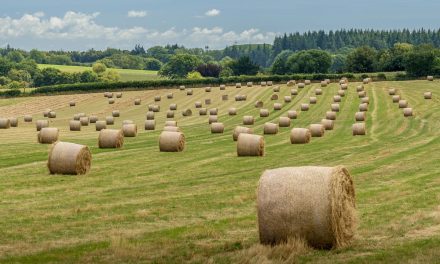
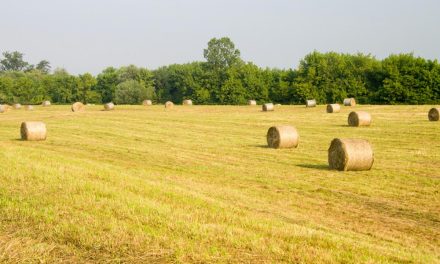

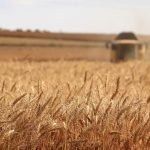
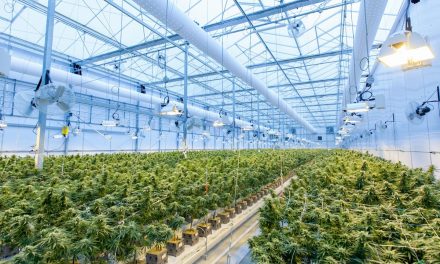
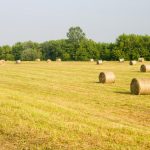

![[eBook] Sustainability and water management](https://agriplasticscommunity.com/wp-content/uploads/8_550x310_ENG-440x264.png)
![[eBook Trends in Agriculture Plastics] Increasing use of biodegradable mulch](https://agriplasticscommunity.com/wp-content/uploads/550 × 310_2_ENG-150x150.png)
![[eBook Trends in Agriculture Plastics] Reducing the plastic used in the manufacture of agricultural films](https://agriplasticscommunity.com/wp-content/uploads/550 × 310_1_ENG-150x150.png)



